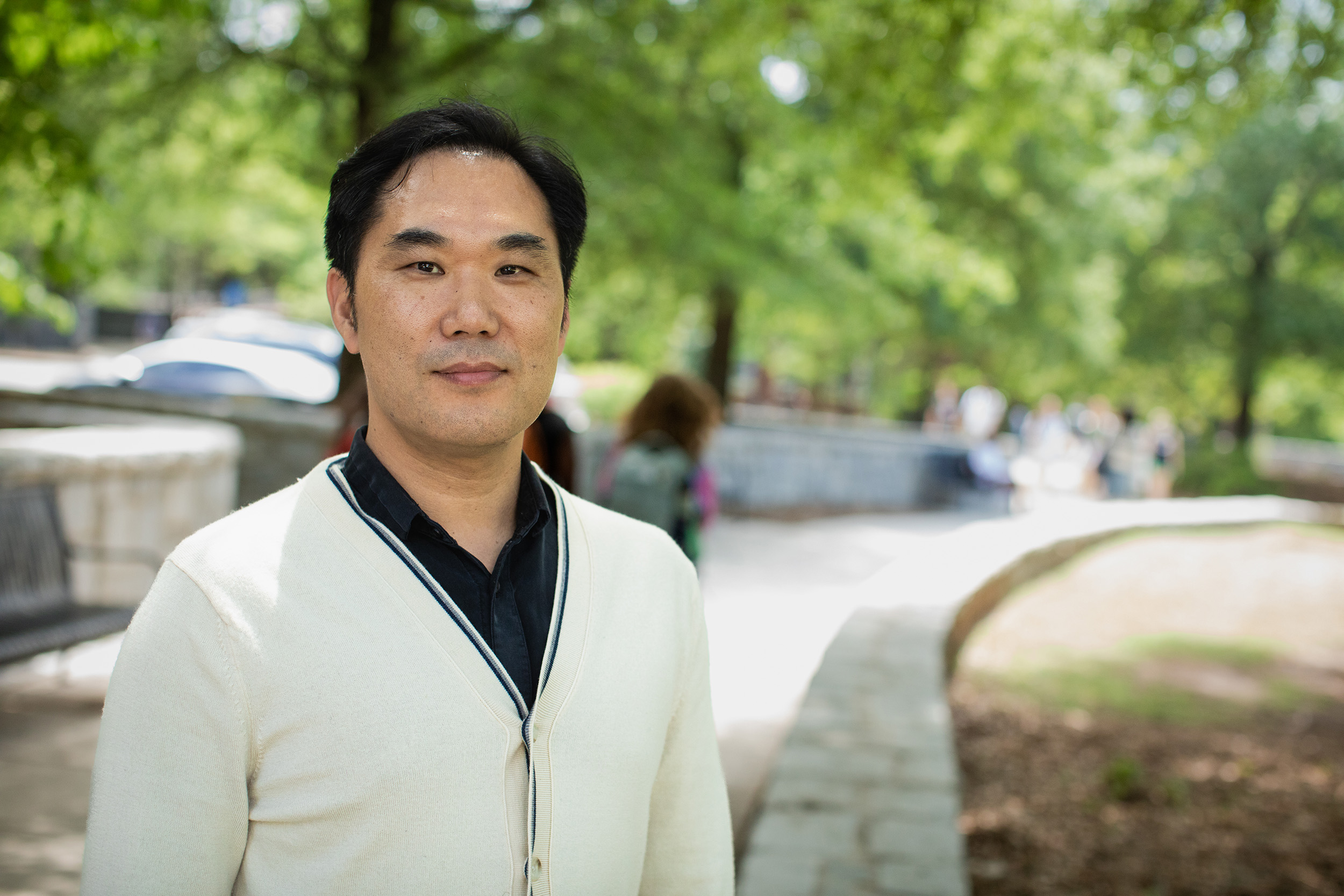
I describe my research by saying that I monitor the health of civil infrastructure, such as pavement and bridges. Much in the way that doctors care about the health of their patients, I regularly monitor the condition of roads and bridges to avoid a sudden collapse or significant deterioration that is directly related to human safety.
Professor and Distinguished Faculty Fellow
I describe my research to people outside of my field by saying that I monitor the health of civil infrastructure, such as pavement and bridges. Much in the way that doctors care about the health of their patients, I regularly monitor the condition of roads and bridges to avoid a sudden collapse or significant deterioration that is directly related to human safety. Much in the way that doctors try to diagnose their patient’s disease by conducting a CT scan, I use ground penetrating radar to scan the subsurface condition of a roadway and identify the risk factors that could result in damage or collapse.
My favorite courses are soil mechanics, pavement design, and construction materials because these topics are aligned with my research areas. My toughest and most fun challenge in teaching is incorporating elements of my research and industry experiences into classroom discussions and exercises. This has had two results.
The first is that I see the problem from many different perspectives, which helps me in my research activities. Secondly, my students leave their textbooks for a moment and become much more involved in the materials; often, they research the problem further on their own than I ask for in the assignments. Everyone seems to benefit from moving “real-world” problems into the classroom. I gain insight from my students, and they gain some real engineering experience from these real-world projects.
My philosophy of teaching is very simple. The student is the consumer and the most important product. I must not forget this. The student does not exist for me, I exist for the student. With this in mind, I have developed some guiding principles which I try to follow:
- The class starts on time. I cannot expect my students to be on time if I am not. While I may think what we are doing or discussing is most important, others may consider something else more important. Hence we start on schedule in my class.
- The books and readings assigned must be current and relevant. There is nothing more of a “turn off” than when a teacher uses the same “moldy yellow” notes that he has used for 30 years without a change or update for relevance.
- I expect the students to be prepared; hence it is important that I be prepared. I always try and have a lesson plan and never go into class just to ramble on and on.
- I do not base a student’s grade merely on one paper exam. I try to be fair and to give the student the benefit of the doubt. While the grade to the student is most important, the most important thing to me is Did he or she learn? I try not to be so vain that I will not admit that I made a mistake, and I will change a grade if I am wrong.
- I try and keep the class interesting; making sure that it is both relevant and entertaining. There is no excuse for talking just to hear myself talk.
- I believe that the rules for evaluation should be set the first day of class and I never change the grading or evaluation system after that. The students want to know what they have to do, and it is not fair to add extra or unexpected burdens.
- After a student has completed one of my courses, I am more than willing to write letters of recommendation. It is important to support the students because if they do not get the jobs, scholarships or internships for which they apply, my teaching may have been in vain.
I love to manage my garden and enjoy yard works. After planting trees, pruning branches and mowing, I don’t get tired but rather feel liberated from stress. To prevent attacks by deer and rabbits in my garden, I am also developing an “owl” using an unmanned aircraft vehicle with alarm and auto-sensing functions.
Dr. S. Sonny Kim is a professor and graduate coordinator of Civil and Environmental Engineering at the University of Georgia. He has specialties in the area of construction materials and pavement and has pursued teaching and research to directly advance the art of sustainable resilient infrastructure management system utilizing nondestructive testing, remote sensing, and machine learning algorithm.
Over the past decade, Dr. Kim has produced over 120 publications in refereed journals, proceedings, and technical reports. He has been recognized with numerous awards, including ASCE Fellow, Distinguished Faculty Fellow by UGA College of Engineering, 2021 ASCE Civil Engineer of the Year, and 2021 Georgia Engineer of the Year by Georgia Society of Professional Engineers.
Learn more about S. Sonny Kim.
